
Swagelok®ガス・ボンベ切り替え用レギュレーター
KCMシリーズ・レギュレーターは、ガス供給源を自動的に切り替えることで継続したガス供給を実現し、ダウンタイム(停止時間)を削減します。
レギュレーターの選定サポートを依頼する重要な一般産業アプリケーションにおいて、Swagelok ガス・ボンベ切り替え用 レギュレーター KCMシリーズを使用して、ひとつのガス供給源から別の供給源へ自動的に切り替えることで、継続したガス供給を実現し、ダウンタイム(停止時間)および人件費を削減することができます。KCMシリーズ・レギュレーターは、最小限のメンテナンスで信頼性の高いガス供給を実現します。コンボルーティッド非せん孔型ダイヤフラムを使用しているため、耐久性および圧力応答性に優れています。
仕様
| 一次側の最高使用圧力 | 30.0 MPa(PEEK製シートの場合) 24.8 MPa ボンベとの接続部やホースのアクセサリーによっては、最高使用圧力が低下する場合があります。 |
| 二次側の圧力調整範囲 | 0~0.068 MPaから0~3.44 MPa |
| 公称切り替え圧力 | 0.68 MPa、1.72 MPa、3.44 MPa |
| 流量係数(Cv値) | 0.06 |
| 最高使用温度 | 80°C(PCTFE製シートの場合) 200°C(PEEK製シートの場合) 100°C(PEEK製シートで、一次側の最高使用圧力が24.8 MPaを超える場合) |
ガス・ボンベ切り替え用レギュレーターのカタログ
ガス・ボンベ切り替え用レギュレーターの構成部品とその材質、アクセサリー、使用圧力、使用温度など、製品に関する詳細情報につきましては、以下の資料をご参照ください。
Swagelok offers pressure-reducing, back-pressure, dome-loaded, and spring-loaded pressure regulators to control pressure and minimize droop in instrumentation systems.
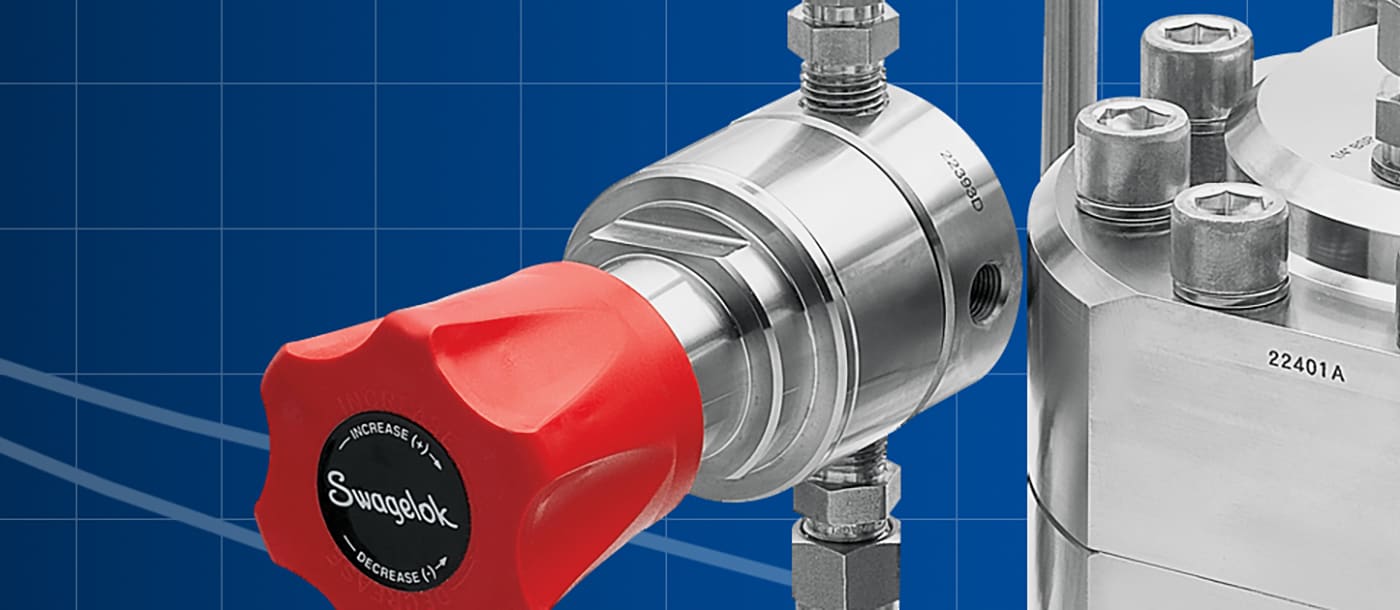
Ressources Swagelok sur les régulateurs de pression
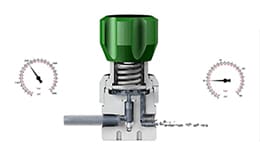
Contrôler l’effet de la pression d’alimentation (SPE) dans un détendeur
L’effet de la pression d’alimentation, également appelé dépendance, est une relation inverse entre les variables de pression d’entrée et de pression de sortie dans un détendeur. Découvrez comment contrôler ce phénomène dans vos détendeurs grâce aux conseils de Swagelok.
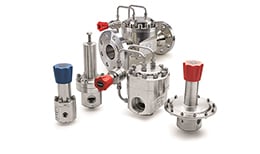
Des tests rigoureux pour garantir la fiabilité des régulateurs
Vous êtes-vous déjà demandé à quels tests était soumis un produit conçu pour fonctionner dans des conditions extrêmes ? Passez les portes des laboratoires pour suivre le développement de régulateurs de la série RHPS conçus pour fonctionner à des températures bien inférieures à zéro.
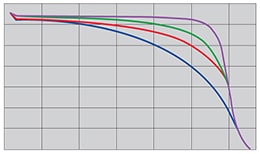
Rapprocher la courbe de débit d’un détendeur de l’horizontale pour atténuer la baisse graduelle de la pression de sortie (droop)
Tout détendeur est confronté au phénomène de baisse graduelle de la pression de sortie (droop). Découvrez comment limiter ce phénomène et rapprocher les courbes de débit de l’horizontale avec différentes configurations de détendeurs à dôme.
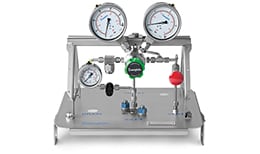
Comment utiliser un détendeur pour réduire le temps de réponse d’un système d’instrumentation analytique
Le temps de réponse d’un système d’analyse est souvent sous-estimé ou mal compris. L’utilisation d’un détendeur permet de réduire ce temps de réponse. Découvrez comment maîtriser le temps de réponse de votre système d’analyse grâce à ces conseils.
